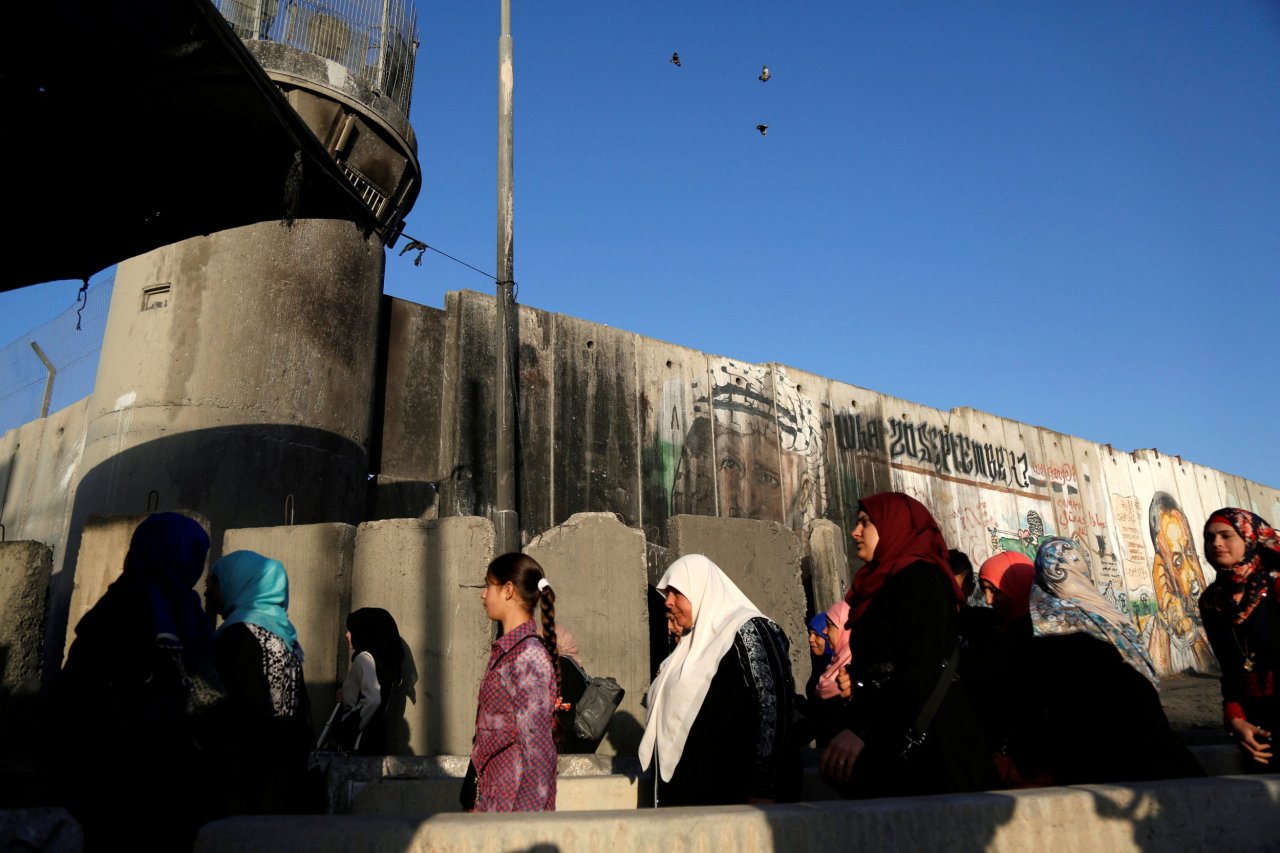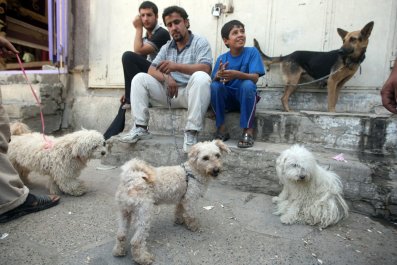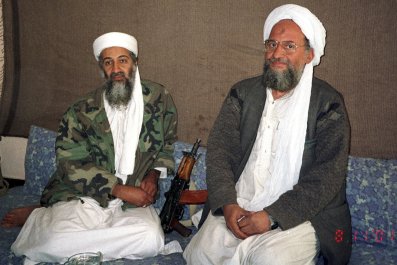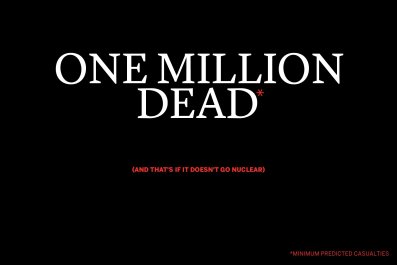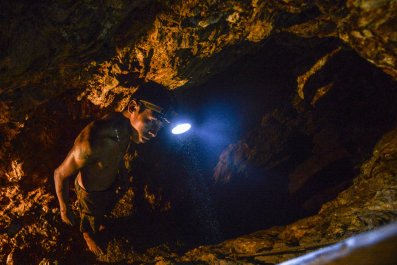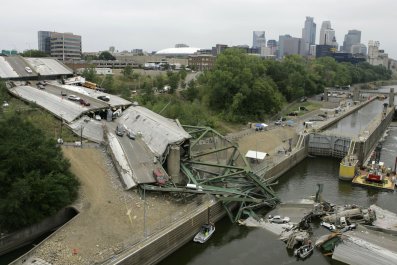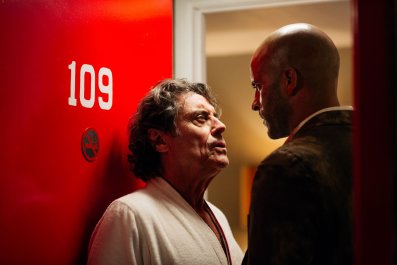Updated | The sun had barely risen, and Khairy Masoud was already in trouble. It was a cold morning in February and Masoud, a day laborer and father of eight, had just passed through a military checkpoint separating his home in the West Bank, near the city of Tulkarem, from Israel. As he hurried to the chaotic parking lot for a ride to work, he says a tissue fell from his pocket. Suddenly, an armed Israeli guard shouted at him in Russian-accented Hebrew and confiscated his most important documents: his work permit and identification card. His infraction: littering. Masoud waited for hours until the guard returned the documents. By then, he'd already lost the day of work.
For years, most of the Israeli men and women working these checkpoints were soldiers in the army. But a decade ago, the crossing Masoud passed through—known as Sha'ar Efraim in Hebrew and al-Tayba in Arabic—was among the first to privatize. Now, Israeli private security guards are increasingly common in the West Bank.
These guards are part of a lucrative industry that benefits from $200 million a year in government contracts in the West Bank. Today, there are more than 30 crossing points between Israel and the West Bank and Gaza; since the mid-2000s, about half of them have fully or partially outsourced security to Israeli companies. The Ministry of Defense does not directly employ guards, but it does contract the companies that hire them and oversees training, salaries and working conditions.
Related: Why West Bank Palestinians can't avoid Israeli goods
The Defense Ministry and Border Police declined to comment for this article, but supporters of the shift to using private security guards at crossing points say it is supposed to make it easier for both Israelis and Palestinians to navigate the checkpoints, where violence often erupts. "It's bad for young soldiers to have to deal with movements of people and cargo in an ongoing conflict," says Baruch Spiegel, a retired Israeli brigadier general and senior Ministry of Defense adviser. "And, of course, it was bad for the image of Israel."
Ilan Paz, former head of the Israeli Defense Forces Civil Administration, the governing body in the West Bank, agrees, saying the work is best suited for civilians with consistent hours and guidelines. "For the Israeli it is not acceptable that I'm sending my child to the army and in the end he's working at these checkpoints. It's not an army issue. It's not something that can done by an 18-year-old."
But critics say the creeping privatization of Israeli security in the West Bank and East Jerusalem is another way the country is further cementing its occupation of these territories, which reduces the chances of there ever being a Palestinian state—or a peaceful end to the conflict. "It's part of sustaining the status quo," said Lior Volinz, an Israeli researcher on this phenomenon and a Ph.D. candidate at the University of Amsterdam. "It's trying to make an unsustainable situation 'better.'''
Israel captured the West Bank, East Jerusalem and the Gaza Strip—which Palestinians claim for a future state—after the 1967 war against various Arab states. And over the past five decades, its occupation of those territories has changed considerably. After nearly 30 years of Israeli rule, the 1994 Oslo accords created the Palestinian Authority—which acts as a semi-autonomous government in parts of the West Bank and in Gaza—and deferred Jerusalem's status to future negotiations. Those talks remain stalled, but the PA works closely with Israel on security issues in the West Bank, which angers many Palestinians. (For the past decade, the militant group Hamas has ruled Gaza, which is currently under Israeli-Egyptian blockade.) After the second intifada (or Palestinian uprising) in the early 2000s, the Israeli military began to build a barrier between Israel and the West Bank, and set up checkpoints throughout to thwart potential assailants. (Palestinians say they are part of an effort to take their land.)
Israel started as a quasi-socialist state, but since the 1980s, waves of privatization, particularly under Prime Minister Benjamin Netanyahu, have reshaped the country and dismantled parts of the welfare state. The move toward private security in the West Bank, which began in the mid-2000s, is an extension of that.
Some see this shift as an attempt to sustain the occupation of the West Bank—by getting Israelis to forget about it. Most Jewish Israelis have to serve in the military, and many have worked at the checkpoints. Now, that's changing, and fewer and fewer Israelis have firsthand experience with them as working the checkpoints becomes just another job in the security business.
The men and women—many of whom are immigrants and working-class Israelis who wind up in civilian security jobs—who do work the checkpoints do benefit from privatization. They receive a competitive salary and have long-term job security. Yet the shift isn't cheaper for the Defense Ministry, as employing private guards is more expensive than using conscripted soldiers. On the other hand, hiring private security creates jobs and boosts the expertise of Israel's security industry, both home and abroad, says Shira Havkin, who's documented the trend for the Van Leer Institute, an Israeli think tank.
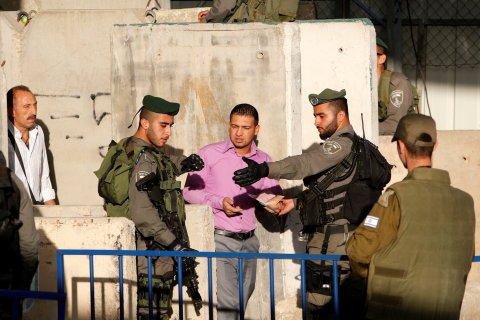
Yet privatization, critics say, obscures who is responsible if there's a problem at a checkpoint—the contractor or the Ministry of Defense. "It's a mess," says Ronit Selah, the director of the occupied territories unit at the Association for Civil Rights in Israel. If Palestinians complain, for example, about something that happened at the Qalandia checkpoint, the main crossing point between Jerusalem and the West Bank, the many security companies that work there often blame one another, Selah says.
No matter who is in charge, Palestinians have long loathed the checkpoints. "It's all khara [shit]," Masoud says, adding that private guards treat people less "like animals" than the soldiers do, but overall "there's no difference." For Palestinians, the checkpoints are both a physical reminder of the occupation—and a tremendous inconvenience. Each day, tens of thousands of Palestinians cross into Israel for work, business, school, medical care, prayer and other services—that is, if they can secure the right Israeli permit. With official unemployment in the West Bank at 26 percent, many like Masoud have no other option but to keep trying to cross over. Delays or issues with permits can lead some Palestinians to lose a day of work—or their jobs.
But both Israelis and Palestinians can lose much more at these checkpoints. In recent years, there have been a spate of stabbings and car rammings in the West Bank and Israel, as Palestinians have been assaulting Israeli soldiers and civilians in lone wolf–style attacks known as "the knife intifada." Since 2015, more than 200 Palestinians and over 40 Israelis have been killed in this wave of violence, which shows little sign of ending—no matter who is in charge of the checkpoints.
The Pulitzer Center funded reporting for this article.
This story has been updated with a version that will appear in the May 5, 2017 version of Newsweek magazine.



